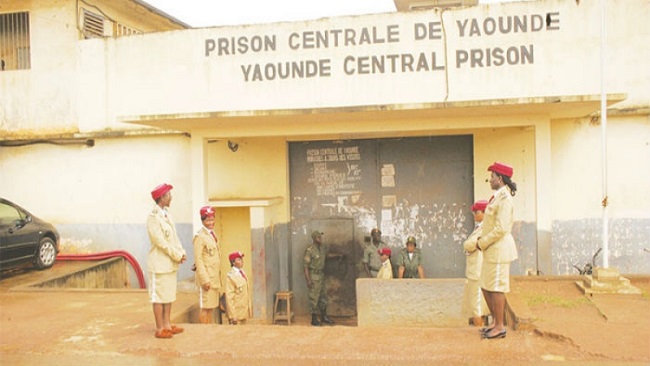Human Rights Watch says Cameroon should protect prison population from COVID-19
This week Cameroon recorded its first death from COVID-19. 88 cases have now been confirmed across the country, although limited testing means the real number is likely higher.
The government recently took measures to curb the spread of the virus, including shutting schools, closing borders, banning mass gatherings, and encouraging people to follow hygiene rules.
But in Cameroon’s prisons, which are notably overcrowded, keeping social distance, practicing self-isolation, and taking basic measures such as hand washing are just not possible.
The central prison in the capital Yaoundé currently holds about 5,000 people – 5 times its capacity – the majority of whom are in pretrial detention. The last time I visited the prison was in 2016, and I was shocked by the dreadful conditions, including filthy latrines and hundreds of detainees crammed in the same small cell. The prison had one health center with only one doctor.
My contacts in Cameroon say nothing has changed. A Cameroonian lawyer who regularly visits it told Human Rights Watch this week: “In the event of the virus spreading inside the prison, no medical care will be possible. The prisoners are piled on top of each other; it’s impossible to keep any safe distance. This prison is a volcano ready to explode.”
Other prisons are no better. The prison in Maroua, in the Far North region, was built for 350 people but currently holds over 1,470, of whom some 70 percent are awaiting trial. The central prison in Buea, in the troubled South-West region, was built for 700 people, but currently holds over 2,000 – again with the majority in pretrial detention.
Cameroonian authorities are limiting prison visits and asking visitors to wash their hands. But lawyers and family members of detainees say it’s not enough.
Under international law, Cameroon has an obligation to ensure the health care of people in prison, and it cannot do that in this pandemic with such overcrowding. Authorities should release individuals whose pretrial detention is not absolutely justified on public safety grounds and put in place a system for considering early or supervised release for those most at risk, including older people and people with health conditions that makes the virus more dangerous for them, as well as those in custody for minor offenses. Anything less will risk the health – and the lives – of thousands of people.
Culled from Human Rights Watch





